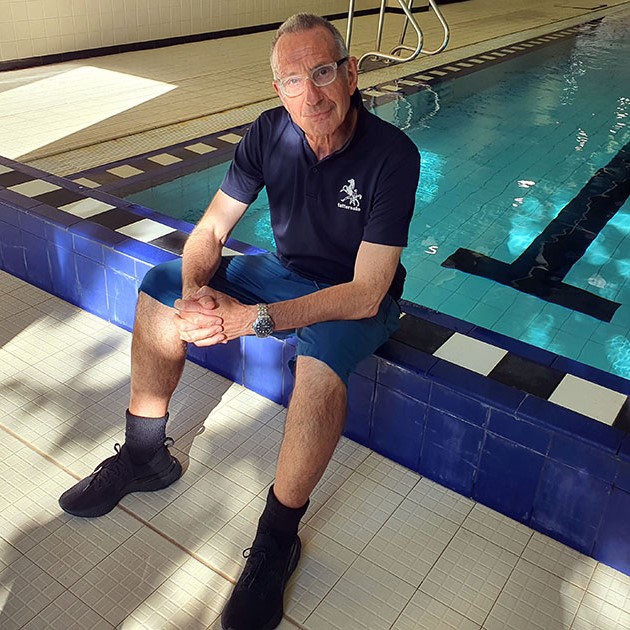Have you ever wanted to learn how to swim, but feel like it’s too late to start?
You’re not alone. If you have been considering taking swimming lessons, don’t let fear hold you back. In conversations with Coach Ewen, we got the best tips to start on your own journey towards swimming success.
What are the basics to learn how to swim?
E: The first thing is to understand breathing. And the starting point is relaxation – you have to be relaxed to be able to give yourself over to the water and learn how to breathe in water. Swimming is about working with water, not against it.
But how can I be relaxed if I am afraid of going under water?
E: As with many activities, you must start somewhere. From working with parents and babies in my early years as a swim teacher, the first thing I noticed was that it wasn’t the babies who were scared of the water, more often than not it was the parent who was intimidated by the aquatic environment. Probably a mum or dad who hadn’t learnt to swim but now, anxious and feeling the need not repeat the problem. They owed it to their child… baby had to learn to swim!
My methodology is to introduce some basic elements or words that combine understanding one’s body and how you can make it function in order to move through water… efficiently!
What are the best exercises to start my swimming journey?
E: I’ll go over the 5 key words I would instil into your brain that, hopefully, will assist you in learning the basics of swimming. They are easy to remember – they all start with C – and you repeat them over and over in the following order:
1) CORE: understand what is meant by engaging your core.
2) COORDINATION: understand all the bits of the body that you use in swimming – from your fingertips to your toes. While they can be identified and isolated, all these bits work in unison… breathing for instance is not a separate thing to learn, it’s key to the whole system of movement whether on land or in water. If one bit or part of the body is askew, another part will be affected and will have to compensate to ensure the body maintains balance and rhythm.
3) COMPOSURE: this is important. There’s no rush… you have to go slowly if you want (eventually) to go faster. Keep focused an ensure all parts of the body are functioning together in an easy, rhythmic, composed way.
4) CONTROL: if you know how to coordinate and work your body holistically, you will feel in control of what you are doing. And if all of this becomes embedded in the muscle memory then you will achieve the final C.
5) CONFIDENCE: the very thing you wanted to feel and be assured of when immersed in water.
Now memorise those words… embed them in your muscle memory. It’s time to leave your brain at the edge of the pool and GET IN THE WATER.
Please contact the team at athletic@tattersallsclub.org or on 9263 9213 if you would like to book a coaching session with coach Ewen.

